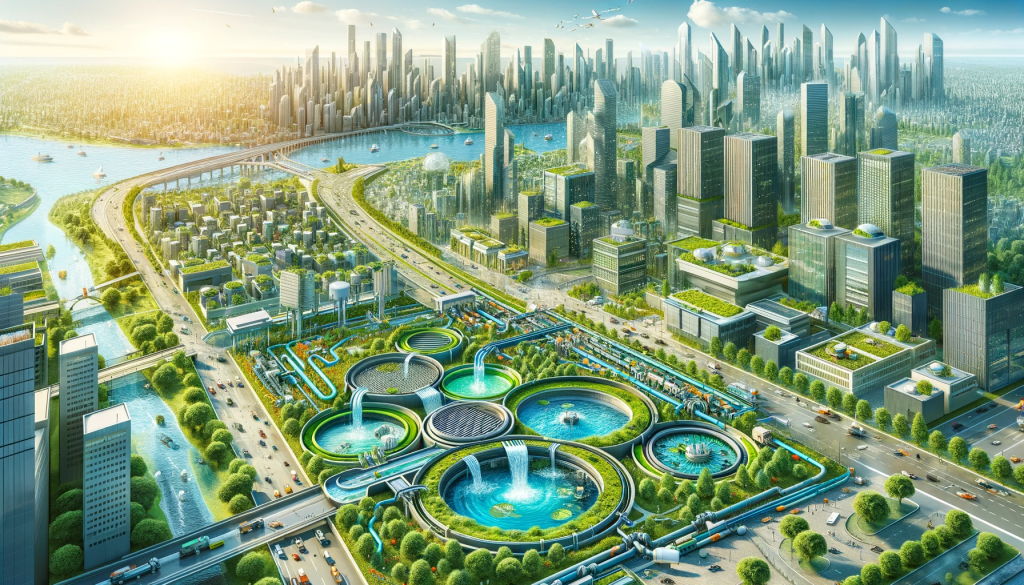In the context of rapid urbanization, the management of waste water has emerged as a critical factor in sustainable urban planning. This article explores the significance of integrating waste water supply into urban development, focusing on how this vital resource can be harnessed to build the sustainable cities of tomorrow.

The Importance of Waste Water in Urban Sustainability
Environmental Impact
Effective waste water management is pivotal in mitigating environmental impacts in urban areas. Properly treated waste water can prevent water pollution, preserving natural water bodies and contributing to overall environmental health.
Resource Optimization
In urban areas, waste water should not be seen as a waste but as a valuable resource. Its reuse for non-potable purposes, like irrigation and industrial cooling, can significantly reduce the pressure on freshwater resources.
Challenges in Waste Water Management
Infrastructure Limitations
Many cities grapple with outdated or insufficient waste water infrastructure. This limitation hinders the capacity to effectively manage and reuse waste water, posing a challenge to sustainable urban development.
Quality and Health Concerns
Ensuring the quality of treated waste water is crucial to protect public health. Effective treatment must eliminate harmful pathogens and pollutants to make the water safe for its intended use.
Innovative Strategies in Urban Waste Water Management
Advanced Treatment Technologies
Innovative technologies like membrane bioreactors and advanced oxidation processes offer more efficient and environmentally friendly ways to treat waste water, making it suitable for reuse.
Recycling and Reuse Practices
Methods for recycling treated waste water, such as for agricultural irrigation or industrial processes, are key to reducing freshwater extraction and promoting sustainability.
Case Studies: Success Stories from Global Cities
Cities like Singapore and Amsterdam have successfully integrated waste water management into their urban planning. These cities demonstrate how innovative practices and technologies can effectively address waste water challenges.
The Role of Policy and Governance
Regulatory Frameworks
Strong policies and regulations are essential to support sustainable waste water management. They provide the necessary framework for implementing effective practices and technologies.
Community Involvement
Engaging communities in waste water management initiatives is crucial. Public awareness and participation can significantly enhance the effectiveness of these programs.
Technology and Innovation: The Way Forward
Emerging Trends
Emerging trends in waste water management, like smart water networks and artificial intelligence for treatment process optimization, promise to revolutionize the field.
The Role of Data and Smart Systems
Data analytics and smart systems can play a crucial role in optimizing waste water management, enhancing efficiency, and reducing costs.
Conclusion
Waste water management is a cornerstone of sustainable urban development. As cities continue to grow, integrating innovative waste water strategies into urban planning is not just beneficial but essential. Urban planners, policymakers, and stakeholders must prioritize this resource to ensure the health and sustainability of our urban environments.